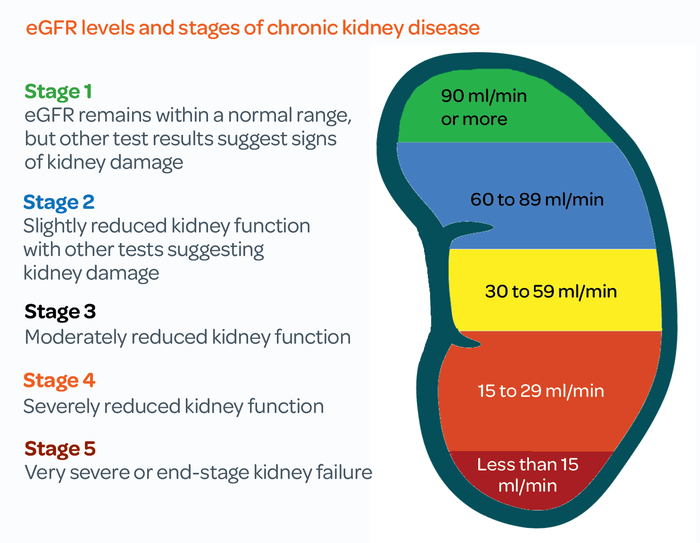Stage 3 CKD is split into two stages: 3a and 3b.
- At 3a, your eGFR is 45-59ml/min.
- At 3b, your eGFR is 30-44ml/min.

Kidney damage is now mild to moderate and your kidneys are beginning to struggle with filtering waste and extra fluid out of your blood.
How you might feel: This is the CKD stage when a lot of people begin to notice signs of a problem, as waste starts to build up and begins to affect different parts of the body. Symptoms can include:
- swelling in your hands and feet
- dry, itchy skin
- feeling tired and weak
- trouble sleeping
- muscle cramps
- foamy wee
- a change in how often you need to wee.
How doctors will treat you: They may prescribe medicines that treat your symptoms as well as underlying conditions like high blood pressure and diabetes. Healthy lifestyle changes are crucial at this stage, including moving more and eating a healthy diet.
The good news is that with treatment and lifestyle changes, most people stay stable at stage 3 and their CKD doesn’t get worse.
Most people diagnosed with CKD stages 1-3 will never need to see a kidney specialist and will remain under the care of their GP.